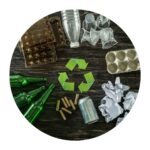The French Network
of Cleantech
Businesses
Our Members
Nearly 40 active members (clusters, competitiveness hubs, professional associations) come together within PEXE, representing almost 6,000 eco-enterprises. The networks share their expertise with the companies. Demander à ChatGPT
The goal is simple: by joining forces, they aim to reach a critical mass large enough to grow their activity. From sharing information, regulatory monitoring, and publishing calls for tenders to supporting entrepreneurs towards the right support schemes, eco-enterprise networks help connect different players and encourage collaborative projects.

Directories
Curated information to support meaningful engagement with stakeholders.
Our Areas of Activity
The French Cleantech Business Observatory
PEXE is the national network supporting the development of start-ups, SMEs, and mid-sized companies in the environment and energy sectors.
The French Cleantech Business Observatory is based on data from companies listed in the national eco-enterprise directory, created with the support of our networks bringing together businesses from regions and sectors involved in the ecological transition. The 2024 edition covers 570 eco-enterprises in the observatory.
SMEs in the fields of environment, energy, and the circular economy
6 000
Clusters, hubs, and professional associations
40
Participants at our annual events
1 500
Stakeholders listed in the ecotech directories
1 300






























